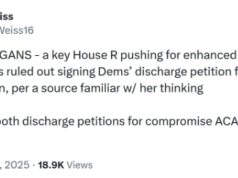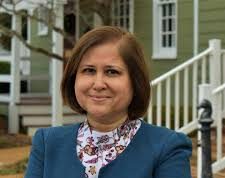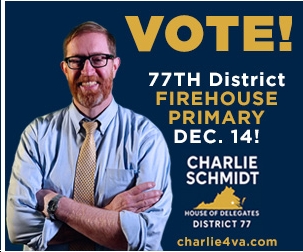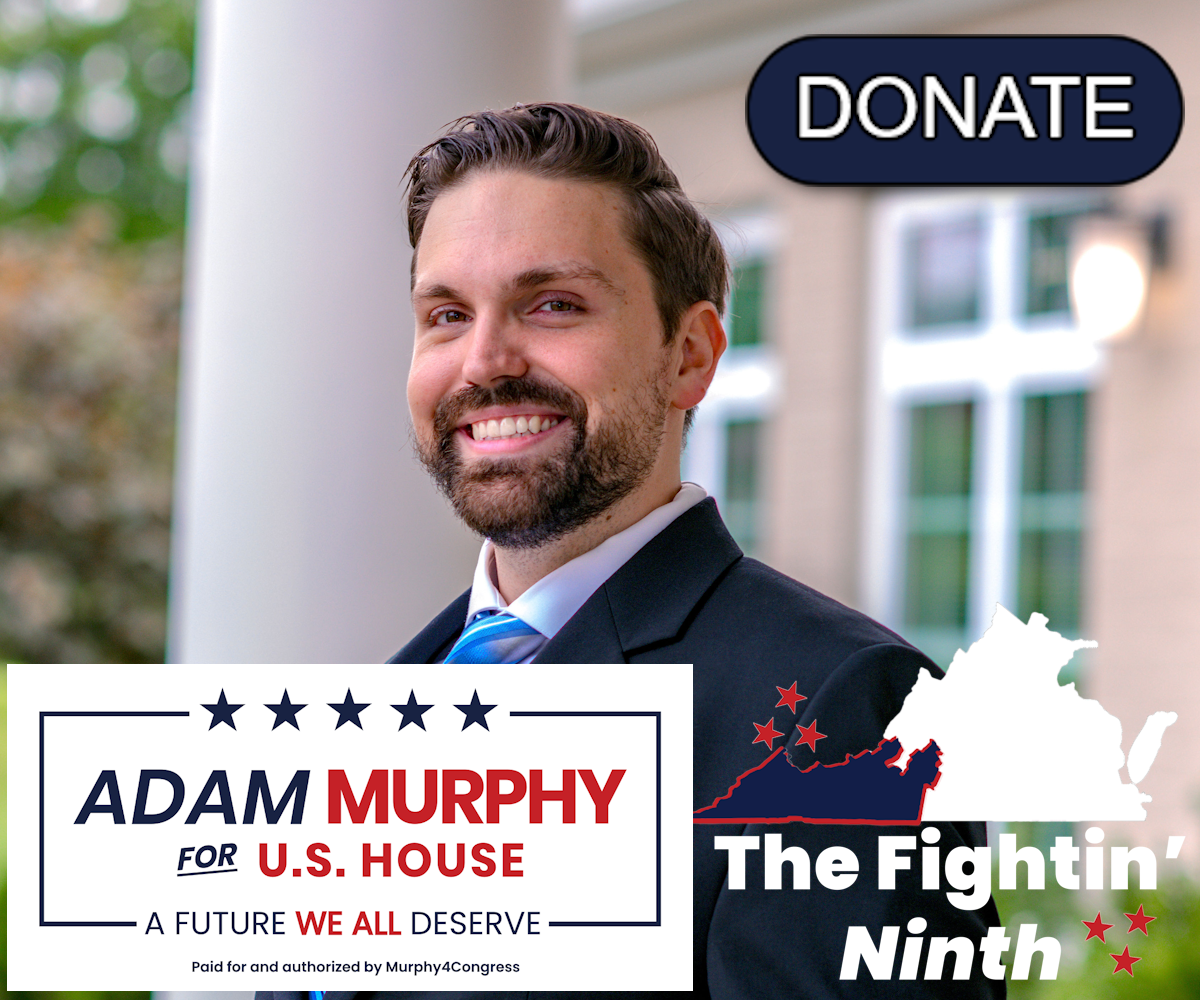BREAKING: UVA Suspends In-Person Education; Students discouraged from returning to campus; reevaluation of situation to occur in early April
***********************
by A Siegel
Listening to world experts and watching what is happening in the world, it seems that the most effective path toward mitigating the corona virus pandemic is social distancing.
A disastrous inundation of hospitals can likely be averted with protective measures we’re now seeing more of — closing schools, canceling mass gatherings, working from home, self-quarantine, avoiding crowds — to keep the virus from spreading fast.
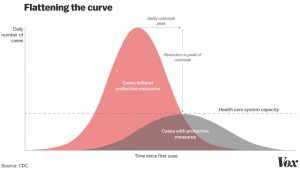 These measures can help “flatten the curve” and reduce the extent of strain on medical facilities.
These measures can help “flatten the curve” and reduce the extent of strain on medical facilities.
As per the above, universities around the country are starting to suspend in-person classes and moving to online education. Many of these decisions are being tied to spring break schedules. The challenge: on break, the students spread out literally around the world; return back to campus with uncertain (though growing likelihood of some) number infected with COVID-19; then spend months together likely with many, many getting infected; and to then finish the school year sending infected students back around the world to worsen the pandemic’s spread.
UPDATE
Just after this was published, UVA announced a suspension of in-person classroom education through the beginning of April, discouraging of student return to campus, and on-line course instruction to begin 19 March.
In response to the global coronavirus outbreak, the University of Virginia will begin transitioning to virtual instruction for graduate and undergraduate courses. Read @presjimryan’s message for more information. https://t.co/RrGklIByy5
— UVA (@UVA) March 11, 2020
The announcement:
March 11: University Moves All Courses Online, Urges Students to Return Home
To the University community,
I write to share an update on our response to the novel coronavirus, known as COVID-19, and our plans for the remainder of the Spring semester.
To begin with the basic and important news:
- We will be moving our classes online. We will not be holding classes on Grounds for the foreseeable future, quite possibly through the end of the semester. We will reassess after April 5th at the earliest and periodically after that date.
- Online classes will begin Thursday, March 19.
- Students who are away on Spring Break are strongly encouraged to return home or to remain home if they are already there.
- Students on Grounds and in Charlottesville are strongly encouraged to return home by this weekend.
- University events with more than 100 people are prohibited for the foreseeable future and should be postponed, cancelled, or offered virtually.
These are obviously significant steps that will cause disruption and disappointment, which we all regret. We nonetheless feel compelled to take these steps in light of the most recent evidence. The virus continues to spread nationally and in Virginia. We still do not yet have a confirmed case of COVID-19 on Grounds or in the greater Charlottesville community, so our risk remains relatively low. Given that fact, the easiest and least disruptive option would have been to bring all students back to Grounds as planned and hope to make it through the rest of the semester without a confirmed case. We also considered bringing students back and moving only large classes online.
After talking more with medical experts, however, and as the evidence of the spread here and abroad mounts, we believe that these approaches would not be sufficient and would create too much risk, especially for our health system and the medical center, which is a Level 1 trauma center and may be stretched to the limits in the coming weeks and months. Experts have also told us that the best time to take steps to prevent that spread is now, before the first case arrives.
Our approach here is guided by three goals: (1) to protect the health of our students, faculty, staff, and Charlottesville neighbors; (2) to help slow the spread of the virus in Virginia and the nation; (3) to ensure the continuity of our teaching, research, and clinical care. All of those goals are advanced by reducing the number of people who are living and meeting on Grounds. We cannot eliminate all risks, of course, but we believe at this time these steps will help mitigate the risks we face.
To be clear, the University – including university buildings and UVA Health – will remain open, and we will bring students back to Grounds as soon as we can do so safely. While we hope to do so before the end of the semester, we may not be able to and are working on a number of contingency plans, including plans for graduation.
A few notes for specific groups:
Students
- If you are currently away on Spring Break, we strongly encourage you to stay home or return to your home. Those who need to return briefly to collect crucial belongings, such as computers or books, will be permitted to do so, and details about how to do so will be forthcoming.
- If you are currently in Charlottesville, we strongly encourage you to return home.
- This strong request applies to all students regardless of where you are living – whether on Grounds or off.
- We recognize that some students cannot go home, for a variety of reasons, ranging from the fact that their hometowns or countries are not safe to the fact that their only homes are in Charlottesville. We will continue to provide housing for students living on Grounds who genuinely cannot return home, and we will continue to provide dining services, though they will be modified. We will also offer assistance to students on financial aid who need help in returning to their homes.
- With the help and creativity of faculty and staff, we will make sure you are able to meet your academic requirements remotely, and we will pay special attention to graduating students. You will be hearing from deans and professors over the next week with details about your classes, including any clinical, experiential, performance-based, or studio learning that may require alternative arrangements.
Faculty
- All faculty will be hearing from their deans soon with more details about moving classes online.
- We are standing up a team to provide the necessary training and technology to move courses online.
- While some research will be put on hold, we have plans in place to allow core research operations to continue. Those of you who are conducting research will be hearing from our Provost, Liz Magill, and our Vice President for Research, Ram Ramasubramanian, with more details soon.
Staff
- For the time being, staff should continue reporting to work as usual and take the recommended steps to prevent illness. A full list can be found here.
- Staff with questions or concerns about their workplaces and the possibility of telecommuting should speak with their supervisors. We ask that staff who are feeling sick to please remain at home.
Events
- Effective immediately and until further notice, we are suspending all university-sponsored events that involve more than 100 people.
- For events that involve fewer than 100 people, we strongly recommend alternatives to having an in-person event and, if that is not possible, taking all necessary precautions to mitigate the risk of infection. We also ask that those hosting events that involve visitors traveling to Grounds, of whatever size, consider alternatives or cancelling those events, depending on the risks involved.
- At this time, these restrictions do not apply to athletic events or events at JPJ, both of which remain under discussion and consideration.
We realize you will likely have questions, both about this decision and about COVID-19 in general. Starting today, you can go to this website for more information, and we have set up a call center (Domestic: 877-685-4836; International: +1 202-800-2408) with staff trained to answer the most common questions. We will also be sending out more detailed communications about various elements of this plan, which we will also post on the website. As this is an evolving situation, we will also provide updates if there are significant changes to the plan outlined in this email.
I would like to thank the teams from across the University who have been working incredibly hard over the last few weeks, and who will keep working hard to make this transition as smooth as possible. I am deeply grateful that UVA is home to so many expert, capable people who are dedicated to the well-being of our community and to our critical missions of teaching, research, and clinical care.
I would also like to thank all of you for your patience and understanding. Put simply, UVA has never encountered something quite like this. There is no roadmap for trying to put most of the University curriculum online in a week. But I have enormous faith in this community – in your resilience, your willingness to do your part to keep others safe, and your ability to make the most of a very difficult situation.
I have special faith in our students, for whom the health risks are generally low and for whom the disappointments are high, but who I know will recognize that now is the time to think first of the well-being of others.
We are in this together, though I recognize that the impact will be uneven. As the father of a graduating senior at another university who has been asked to return home, I know this decision will hit our fourth-year students especially hard. It will also create economic challenges and hardships for some in the Charlottesville community whose livelihoods depend on our students. We will make it through this together by supporting each other, thinking creatively, and staying connected even if physically separated. I cannot pretend, obviously, that this is how I hoped this semester would unfold. No one can. But I eagerly await the ingenuity, compassion, and kindness that this common challenge will surely unlock within our community. If there were ever a time to be both great and good, this is surely it.
Best,
Jim
—
James E. Ryan
President
University of Virginia



